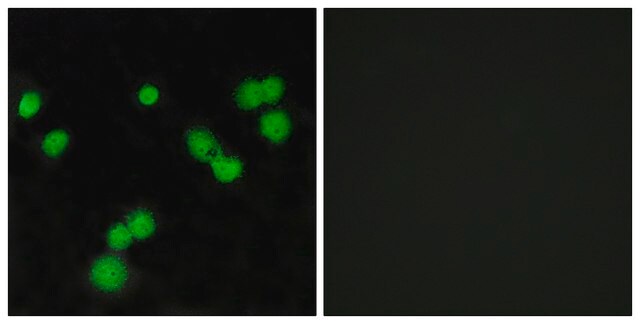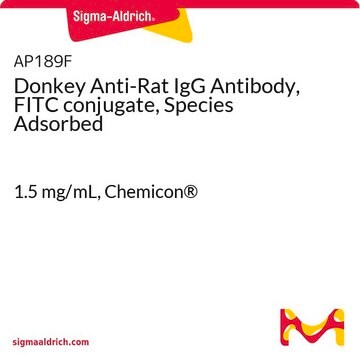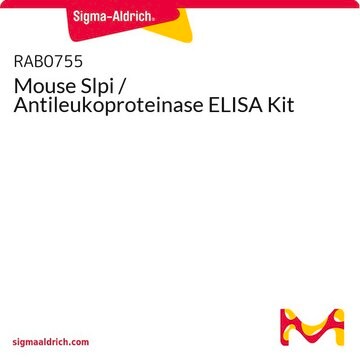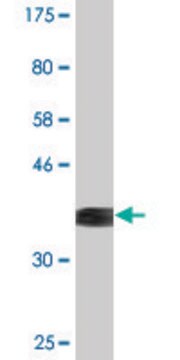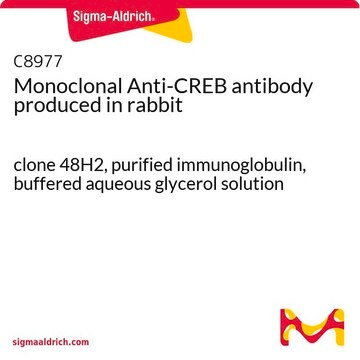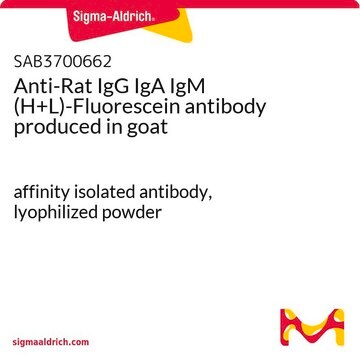AP189C
Donkey Anti-Rat IgG Antibody, Cy3 conjugate, Species Adsorbed
Chemicon®, from donkey
Sign Into View Organizational & Contract Pricing
All Photos(1)
About This Item
UNSPSC Code:
12352203
eCl@ss:
32160702
NACRES:
NA.46
Recommended Products
biological source
donkey
Quality Level
conjugate
CY3 conjugate
antibody form
F(ab′)2 fragment of affinity isolated antibody
antibody product type
secondary antibodies
clone
polyclonal
species reactivity
rat
manufacturer/tradename
Chemicon®
technique(s)
immunofluorescence: suitable
shipped in
wet ice
target post-translational modification
unmodified
Related Categories
Application
Donkey anti-Rat IgG Antibody, Cy3 conjugate, Species Adsorbed is an antibody against Donkey Rat IgG for use in IF.
Legal Information
CHEMICON is a registered trademark of Merck KGaA, Darmstadt, Germany
Not finding the right product?
Try our Product Selector Tool.
Hazard Statements
Precautionary Statements
Hazard Classifications
Aquatic Chronic 3
Storage Class Code
11 - Combustible Solids
WGK
WGK 3
Certificates of Analysis (COA)
Search for Certificates of Analysis (COA) by entering the products Lot/Batch Number. Lot and Batch Numbers can be found on a product’s label following the words ‘Lot’ or ‘Batch’.
Already Own This Product?
Find documentation for the products that you have recently purchased in the Document Library.
Anand Vasudevan et al.
F1000Research, 3, 92-92 (2014-07-31)
Many animals use chemicals as pheromones to communicate between individuals of the same species, for example to influence mate choice or to assert dominance. Pheromonal communication is an open broadcast system that can be intercepted by unintended receivers such as
Hauke Thiesler et al.
Cellular and molecular life sciences : CMLS, 78(4), 1637-1653 (2020-07-30)
Polysialic acid (polySia) emerges as a novel regulator of microglia activity. We recently identified polysialylated proteins in the Golgi compartment of murine microglia that are released in response to inflammatory stimulation. Since exogenously added polySia is able to attenuate the
Yina Sun et al.
International journal of molecular sciences, 25(9) (2024-05-11)
In contrast to cats and dogs, here we report that the α2-adrenergic receptor antagonist yohimbine is emetic and corresponding agonists clonidine and dexmedetomidine behave as antiemetics in the least shrew model of vomiting. Yohimbine (0, 0.5, 0.75, 1, 1.5, 2
Kentaro K Ishii et al.
Neuron, 95(1), 123-137 (2017-06-27)
In mice, various instinctive behaviors can be triggered by olfactory input. Despite growing knowledge of the brain regions involved in such behaviors, the organization of the neural circuits that convert olfactory input into stereotyped behavioral output remains poorly understood. Here
Ning Lu et al.
Nature communications, 9(1), 742-742 (2018-02-23)
Semaphorin-4A (Sema4A) has been implicated in the co-stimulation of T cells and drives Th1 immune responses by binding to the receptor T-cell immunoglobulin and mucin domain protein 2 (Tim-2) in mice. Here we show that human, but not murine, Sema4A
Our team of scientists has experience in all areas of research including Life Science, Material Science, Chemical Synthesis, Chromatography, Analytical and many others.
Contact Technical Service